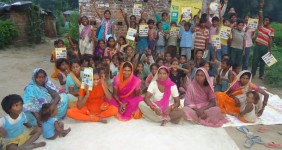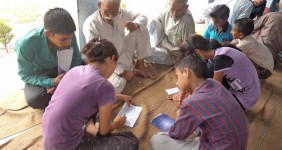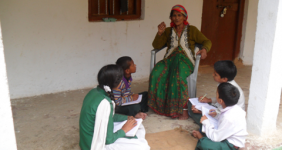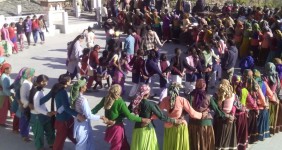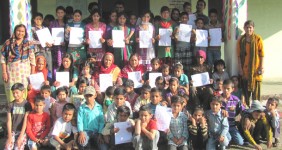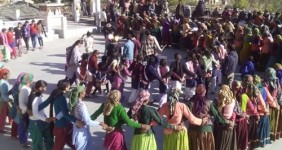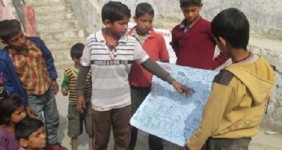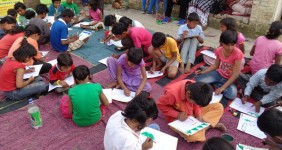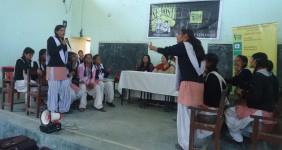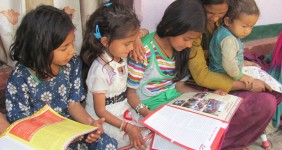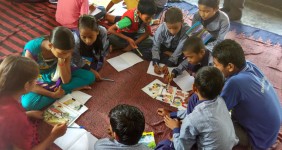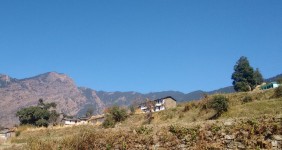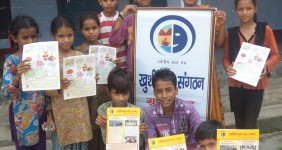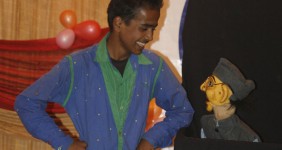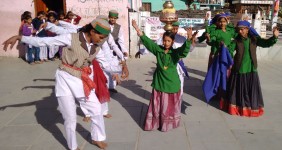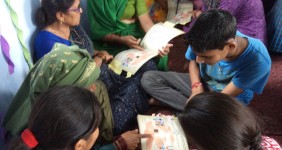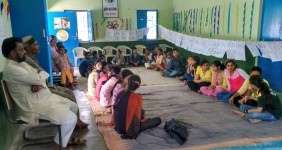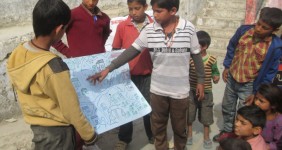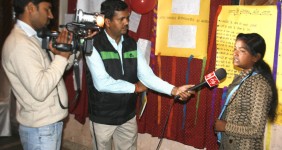The MCF Story
What We Do
The Mountain Children’s Foundation (MCF) leverages the power of collective action and the energy and idealism of youth to empower children in rural mountain regions to improve their communities from the ground up.
Our “bottom-up, inside-out” model of development generates organic, lasting impacts that strengthen communities, build citizenship, combat discrimination, and raise the profile of child rights and child participation.
Our Network
Over the past 20 years, we have developed a network of children’s groups and non-governmental organizations across the Indian state of Uttarakhand that collaborate to break down barriers for children and enhance the role of young people in transforming their communities. Our work currently touches some 53 villages, 7000 children and in 2 districts in Uttarakhand.
Our Impact
 MCF’s child-driven model — by equipping young people with knowledge, leadership and communication skills — creates a platform for them to discuss their concerns and find realistic, locally tenable solutions. Because the problems are as varied as the communities themselves, we focus on a wide range of issues, starting with child rights and participation to health and sanitation, education, civic engagement, preserving the environment, battling disasters and turning away from practices that discriminate between genders or on the basis of caste or religion. Children are the most effective purveyors of information and persistent advocates for the causes they believe in. Thus, their impact spans multiple generations: The children themselves, their parents and, as these engaged, empowered children reach adulthood, their own children.
MCF’s child-driven model — by equipping young people with knowledge, leadership and communication skills — creates a platform for them to discuss their concerns and find realistic, locally tenable solutions. Because the problems are as varied as the communities themselves, we focus on a wide range of issues, starting with child rights and participation to health and sanitation, education, civic engagement, preserving the environment, battling disasters and turning away from practices that discriminate between genders or on the basis of caste or religion. Children are the most effective purveyors of information and persistent advocates for the causes they believe in. Thus, their impact spans multiple generations: The children themselves, their parents and, as these engaged, empowered children reach adulthood, their own children.
Across Uttarakhand, you can find evidence of dramatic transformation wrought by the children – from using India’s Right to Information Law to get action from the government to getting their communities to understand and change habits related to hygiene and sanitation to ensuring 100 percent birth registration in their communities and pushing for gender equality.
Details
The Mountain Children’s Foundation is based in Dehradun, Uttarakhand and is registered under the Indian Societies Act in 2003 (UK0600312203012469 ), FCRA No. 347900144 renewed 01 January 2022. Section 12AA of the income tax Act from 2006 renewed upto 2027 and Section 80G of the income tax Act 2009 renewed upto 2027
Annual Report
In our latest annual report see how the young people of the MCF have continued to demonstrate their dedication, creativity, and commitment to working together to improve their communities.
We successfully carried out the following programs:
- MCF AU Bank and Sanjay Jyoti Agawal Foundation: Enhancing Child Nutrition and Fosatering Community Development
- MCF APPI: Child Participation and Child Protection Mechanisms
- MCF Nucleus Software Foundation: Remidal Teaching for Quality Education.
- MCF IRIS Foundation : Child Participation, Nurtituon and Hygiene
- MCF Naintal Bank: Safe Guarding Children
In addition, we published and distributed a total of 600 copies of PABAM magazine to our children’s groups every quarter.
The MCF also continues to advocate on behalf of child rights and child participation, which—despite increasing attention and acknowledgement of its importance in any development effort—is often lost in the design and implementation of projects and activities on the ground. Because the needs of each community are different, we do not have a set program or agenda. We do not seek to tell communities what they should do. Instead, we offer information, activities and support around a variety of strands, including health and sanitation, child rights and participation, disaster mitigation, education, birth registration, gender equity, environmental stewardship,and governance and the Right to Information Act. We try to introduce elements of each of these strands into all the communities in which we work.
As always, the energy and enthusiasm of the young people inspires our efforts. This year, young MCF members prevented a child marriage and helped two girls to go back to school. The children of the MCF also negotiated with their community and got permission to participate in the village general meeting, which had previously only been for adults. They have persuaded their families to build and use toilets and contributed significantly to the overall cleanliness of the village.
The MCF now plays as an advocate for children in mountain communities. What has served the MCF well all these years is working close to the ground and being responsive to the needs and priorities of the children and working in cooperation with our local partner organizations.


